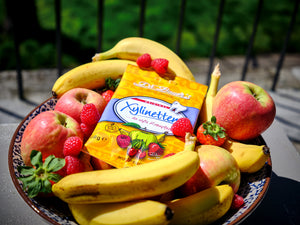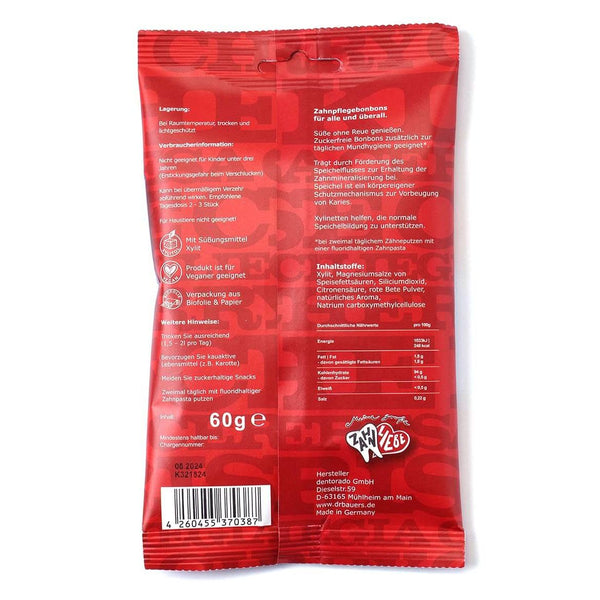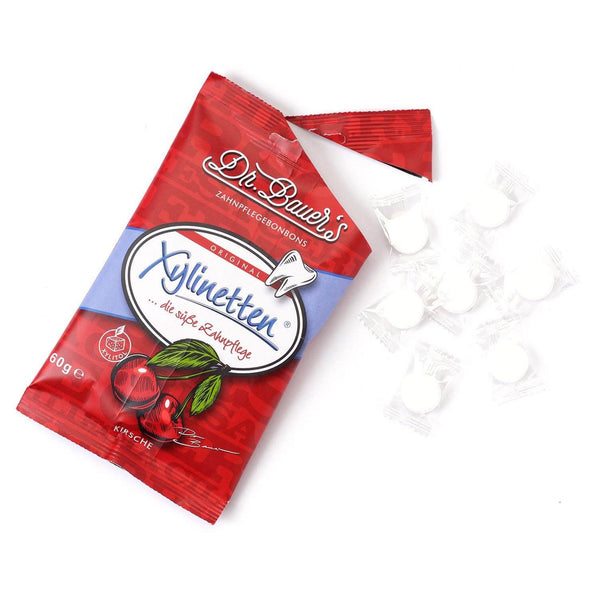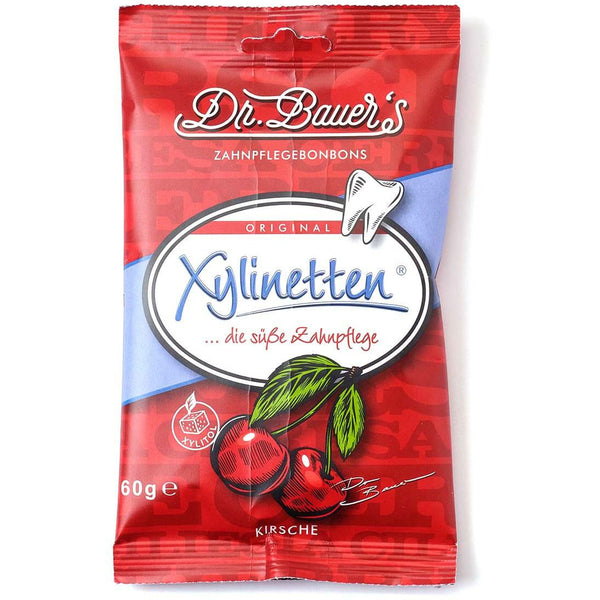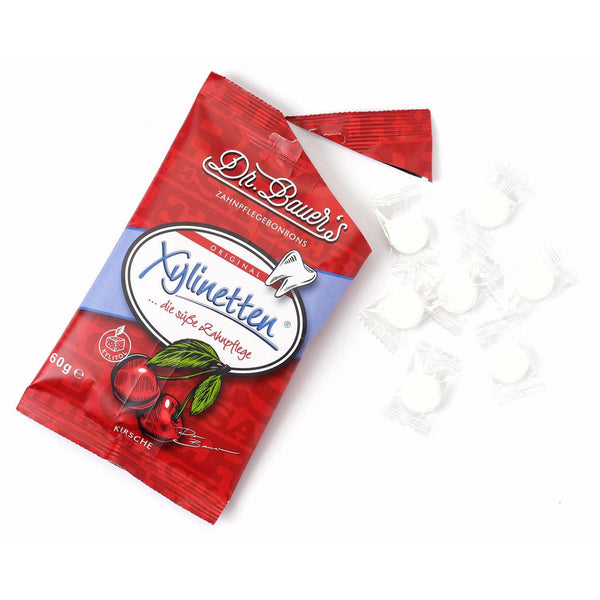
Dr. Bauer's Xylinetten Cherry 60g
Dr. Bauer's Xylinetten Cherry – Natural cherry enjoyment for your dental health
The taste of home
It doesn't always have to be exotic. Sometimes it's the familiar taste of nature that brings a smile to our faces. With Dr. Bauer's Xylinetten Cherry, you experience the pure, stone- and sugar-free cherry flavor while naturally nourishing your oral flora. Fruity, fresh, and simply unmistakable.
Enjoy sweets and care for your teeth
Dr. Bauer's Xylinettes are made from over 95% natural, GMO-free xylitol and help prevent cavities, plaque, dry mouth, and tartar buildup. Whether after meals or in between meals – dental care can be that simple.
Good for you, good for the environment
Our Xylinettes are not only good for your teeth, but also for the environment. Packaged in biodegradable biofilm, completely free of petroleum and made from renewable resources, you can enjoy them with a clear conscience.
Always ready for you
Whether at work, school, or on the go – Dr. Bauer's Xylinetten Cherry are the perfect companion. Ideal as a supplement to brushing your teeth and for fresh breath in between.
Function and recommended use
Dr. Bauer's Cherry Xylinetten support oral health by promoting saliva flow. They are ideal as a supplement to daily dental care and provide fresh breath. Recommended intake: Adults: 4 tablets, children: 2-3 tablets daily, preferably after meals.
Ingredients (INCI)
Xylitol, Magnesium Stearate, Silica, Citric Acid, Beta Vulgaris Root Extract, Aroma.
Nutritional values
| Nutritional information | per 100g |
|---|---|
| energy | 1068 kJ / 256 kcal |
| Fat | 2.8 g |
| - hereof: saturated fatty acids | 2.8 g |
| Carbohydrates | 95g |
| - of which sugar | <0.5 g |
| protein | <0.5 g |
| Salt | 0.01 g |
sustainability
Our Xylinettes are packaged in a biodegradable biofilm that's petroleum-free and made from renewable raw materials. Sustainable and environmentally friendly, for a good feeling.

Manufacturer and contact details
Manufacturer: dentorado Handelsgesellschaft mbH
Address: Lämmerspieler Str. 100A, 63165 Mühlheim am Main, Germany
Contact: Telephone: +49 (0) 6108 8226200 | Email: mail@drbauers.de
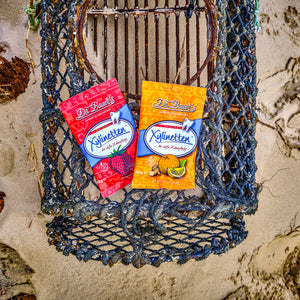
Dr. Bauer’s Xylinetten
Dr. Bauer’s fruchtig-süße und zuckerfreie Xylinetten beugen Karies, Plaque, Mundtrockenheit und Zahnsteinbildung vor.
So nachhaltig, dass es knistert
Alles ist vergänglich. Auch die Biofolie von Dr. Bauer's. Erdölfrei und zu 100% aus natürlich nachwachsenden Rohstoffen ist unsere Verpackungsfolie vollständig biologisch abbaubar. Sie zerfällt einfach zu Wasser, Kohlendioxid und Biomasse.
Meine große Zahnliebe
